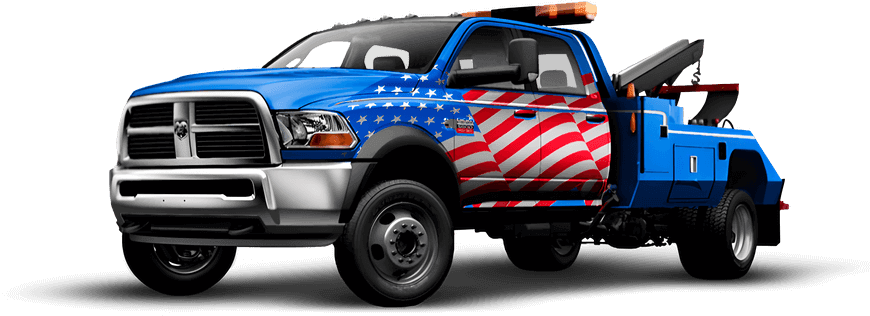Blog
-
January 20, 2023
Junk Car and its Registration A-Z Guide
 Scrapping a car can be difficult, but it doesn't have to be. If you're wondering how, where, and why to scrap a car, you've come to the right place.
Scrapping a car can be difficult, but it doesn't have to be. If you're wondering how, where, and why to scrap a car, you've come to the right place. -
January 19, 2023
Why Does America Have a 25-Year Import Rule?
 This rule, which applies to vehicles at least 25 years old, significantly impacts the US classic and vintage car market. This article will explore the history and implications of the 25-year import rule.
This rule, which applies to vehicles at least 25 years old, significantly impacts the US classic and vintage car market. This article will explore the history and implications of the 25-year import rule. -
January 13, 2023
Selling Your Junk Car to the Government: Is it Worth It?
 When it comes to getting rid of an old, junk car, many people wonder if the Government is an option for selling it for cash. The idea of getting paid by the Government for an unwanted vehicle sounds too good to be accurate, but is it?
When it comes to getting rid of an old, junk car, many people wonder if the Government is an option for selling it for cash. The idea of getting paid by the Government for an unwanted vehicle sounds too good to be accurate, but is it? -
March 16, 2021
The Best Pre-Purchase Inspection Checklist and Why You Need One Before Buying a Car
 A pre-purchase inspection checklist is essential when you buy a car. Even if you’re buying a new car from a dealership, you want a vehicle checklist. Not every automobile comes off the assembly line in flawless condition. Purchasing a new or used vehicle demands being somewhat familiar with the car buying...
A pre-purchase inspection checklist is essential when you buy a car. Even if you’re buying a new car from a dealership, you want a vehicle checklist. Not every automobile comes off the assembly line in flawless condition. Purchasing a new or used vehicle demands being somewhat familiar with the car buying... -
February 19, 2021
Who Buys Cars with Blown Engines and How to Sell Your Car with a Blown Engine
 Before you put your car up for sale, there are three things to do first. Take an opportunity to review this information to ensure that you get more money when you sell.
Before you put your car up for sale, there are three things to do first. Take an opportunity to review this information to ensure that you get more money when you sell. -
February 13, 2021
3 Telltale Signs You’ve Got a Blown Engine
 There are some obvious signs of a blown engine that can help you recognize the problem and move forward with repairs or trade-ins.
There are some obvious signs of a blown engine that can help you recognize the problem and move forward with repairs or trade-ins. -
January 19, 2021
Car Buying Trends for 2022: What You Need to Know
 With the new year comes new products, new sales, and excited consumers on the hunt for the best of the best. However, manufacturers and dealers in the automotive industry know not to get excited too soon. Car buying trends for 2022 look a bit different than previous years due to...
With the new year comes new products, new sales, and excited consumers on the hunt for the best of the best. However, manufacturers and dealers in the automotive industry know not to get excited too soon. Car buying trends for 2022 look a bit different than previous years due to... -
November 15, 2020
Driving in Snow for The First Time: What You Need to Know
 If you're one of the many individuals who have a fear of driving in snow for the first time, it's important to remember you are not alone.
If you're one of the many individuals who have a fear of driving in snow for the first time, it's important to remember you are not alone. -
November 09, 2020
How to Keep an Old Car from Falling Apart in the Autumn Time
 Aside from the maintenance checks, you can also perform basic car care for your old vehicles to keep them from falling apart around autumn time.
Aside from the maintenance checks, you can also perform basic car care for your old vehicles to keep them from falling apart around autumn time. -
August 25, 2020
When Can a Child Stop Using a Booster Seat? Take The 5-Step Car Seat Test
 As kids get older, they want to be treated as a “big kid,” and part of the process includes not wanting to sit in a booster seat. As a parent, you’ll hear it time and time again: “I’m too big to use a booster seat!” However, you need to be...
As kids get older, they want to be treated as a “big kid,” and part of the process includes not wanting to sit in a booster seat. As a parent, you’ll hear it time and time again: “I’m too big to use a booster seat!” However, you need to be... -
August 13, 2020
Easy Essential Tips for Identifying Car Parts Using the VIN Number While Shopping at a Junkyard
 Need to make repairs or replace damaged parts on your old car? Then you’ll need your vehicle's VIN number to find the correct part. So how do you use your VIN number to find parts suitable for your car?
Need to make repairs or replace damaged parts on your old car? Then you’ll need your vehicle's VIN number to find the correct part. So how do you use your VIN number to find parts suitable for your car? -
August 06, 2020
What Are the Primary Car Part Names You Need to Know?
 Knowing the names and details of your car parts list might seem like a chore, especially when it's not your area of expertise. However, understanding how all these parts work to keep your car on the road will be beneficial to you in the long haul.
Knowing the names and details of your car parts list might seem like a chore, especially when it's not your area of expertise. However, understanding how all these parts work to keep your car on the road will be beneficial to you in the long haul. -
July 30, 2020
What Is the Safest Car Color: Car Colors Influence
 Ever wondered if the color of your car plays a part in its overall safety? Studies show that certain colors are considered safer than others, and there’s why.
Ever wondered if the color of your car plays a part in its overall safety? Studies show that certain colors are considered safer than others, and there’s why. -
July 20, 2020
Car Polish Vs Wax? Use Both to Keep Your Car in Great Shape and Save Money
 Maintaining your car keeps it looking sharp and saves money. Car wax vs polish? Wax vs paint sealant? Knowing the differences is critical for your automobile.
Maintaining your car keeps it looking sharp and saves money. Car wax vs polish? Wax vs paint sealant? Knowing the differences is critical for your automobile. -
May 27, 2020
Diesel VS Gasoline Environmental Impact
.png) Air, water, soil and noise pollution are a major concern to many people. Understanding the environmental impact of diesel vs gasoline powered engines can help you choose the cleaner fuel.
Air, water, soil and noise pollution are a major concern to many people. Understanding the environmental impact of diesel vs gasoline powered engines can help you choose the cleaner fuel.
